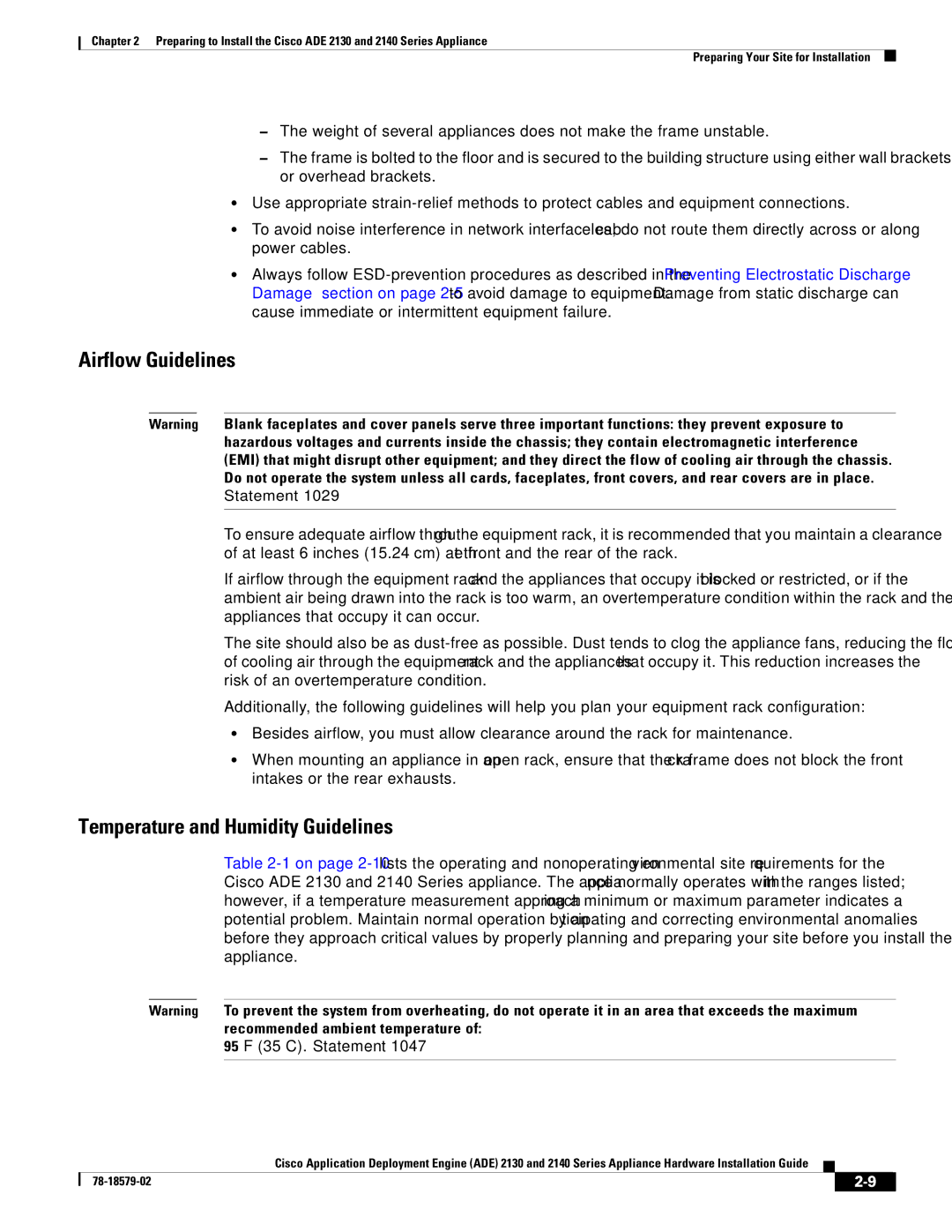
Chapter 2 Preparing to Install the Cisco ADE 2130 and 2140 Series Appliance
Preparing Your Site for Installation
–The weight of several appliances does not make the frame unstable.
–The frame is bolted to the floor and is secured to the building structure using either wall brackets or overhead brackets.
•Use appropriate
•To avoid noise interference in network interface cables, do not route them directly across or along power cables.
•Always follow
Airflow Guidelines
Warning Blank faceplates and cover panels serve three important functions: they prevent exposure to hazardous voltages and currents inside the chassis; they contain electromagnetic interference (EMI) that might disrupt other equipment; and they direct the flow of cooling air through the chassis. Do not operate the system unless all cards, faceplates, front covers, and rear covers are in place. Statement 1029
To ensure adequate airflow through the equipment rack, it is recommended that you maintain a clearance of at least 6 inches (15.24 cm) at the front and the rear of the rack.
If airflow through the equipment rack and the appliances that occupy it is blocked or restricted, or if the ambient air being drawn into the rack is too warm, an overtemperature condition within the rack and the appliances that occupy it can occur.
The site should also be as
Additionally, the following guidelines will help you plan your equipment rack configuration:
•Besides airflow, you must allow clearance around the rack for maintenance.
•When mounting an appliance in an open rack, ensure that the rack frame does not block the front intakes or the rear exhausts.
Temperature and Humidity Guidelines
Table
Warning To prevent the system from overheating, do not operate it in an area that exceeds the maximum recommended ambient temperature of:
95°F (35°C). Statement 1047
Cisco Application Deployment Engine (ADE) 2130 and 2140 Series Appliance Hardware Installation Guide
|
| ||
|
|
